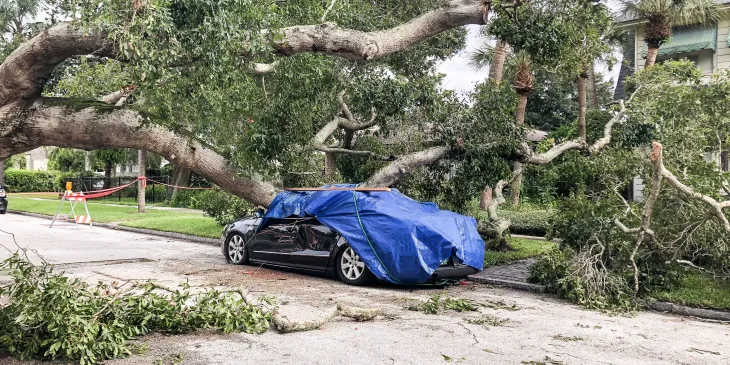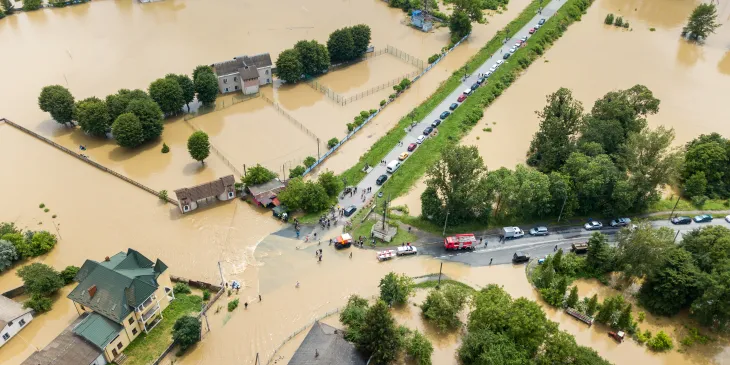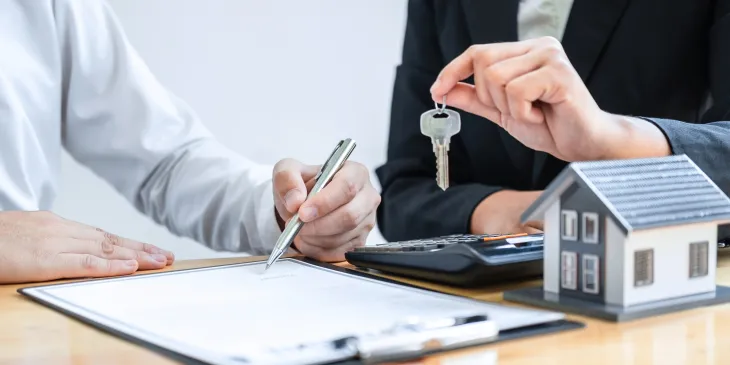How to Prepare for Hurricanes and Other Natural Disasters

No one knows when a natural disaster will strike. That is why preparing for anything coming your way is essential. Hurricanes, earthquakes, tornados, wildfires, sinkholes, hailstorms, and drought can all cause severe damage to your home and property. In this blog post, we will discuss how to prepare for natural disasters so that you can stay safe during storms!
How to Prepare for a Natural Disaster
First, create an emergency plan. Include evacuation routes, places to meet with other family members should you become separated during the evacuation, safe places to shelter, and contact information for your family and friends. Also, include your pets in your emergency and evacuation plans; knowing where you will take them and how you will care for them will reduce stress when natural disasters occur.
Once you decide on an emergency and evacuation plan, practice it. Practicing putting your plan into action helps you prepare for when a natural disaster occurs. According to the National Fire Protection Association, "People who have practiced what to do in an emergency are more likely to evacuate quickly and safely and have a higher survival rate."
Practicing your emergency plan ensures your family remains safe.
What to do if You Must Evacuate
Hurricanes present a unique challenge with natural disasters. These storms can stick around for a while and have tremendous destructive powers. So, it would also help if you protected your home by having emergency supplies such as a few days of food and water, a first-aid kit, flashlights, batteries, and cash. Additionally, you might need to evacuate your area until the storm passes.
Yet, hurricanes aren't the only natural disasters that might require you to evacuate your home. Floods, sinkholes, tornados, and wildfires can cause tremendous damage and safety hazards. If you're new to the area or are uncertain of evacuation procedures, contact your local officials for more information.
Once you know what the evacuation plan is, create an emergency kit that you can use, whether you can hunker down and wait for the storm out or evacuate to a safer location.
Have at least three days' supply of non-perishable food and water for each household member, including pets.
Include the following in your emergency kit:
- Flashlights and extra batteries
- Radio
- Disposable wipes
- Whistle
Check the FEMA site for a complete list of emergency kit essentials.
How to Protect Your Home from Natural Disasters
Your home is your castle, but it's also vulnerable to natural disasters. Check your homeowner's insurance policy to see what natural disasters are covered. Homeowner's insurance doesn't cover everything. Be prepared to consider other options like a flood or additional specialty insurance, depending on your natural disaster risks.
Make sure your home is in good repair; fix any cracks, leaks, or damage. A well-maintained home can better withstand some storm damage, though not all.
Check trees and shrubs near your home. If they appear dead, contact a professional to cut them down before they cause problems to your home or property. Trim overgrown trees and shrubs; fallen branches and dead trees can cause significant damage during a storm.
Install hurricane shutters or impact-resistant glass to protect windows from high winds and flying debris. However, if storm shutters are not an option, you can board windows up with plywood in a pinch.
Finally, if you have a garage, reinforce the door; hurricanes can cause them to collapse.
How to Survive a Natural Disaster
If you find yourself in the middle of a natural disaster, remain calm and follow any safety instructions from authorities.
If indoors during a natural disaster, avoid windows and outside walls. Get to the highest level of your home if possible. Turn off utilities at the main switches if it’s safe to do so and you have time.
What to do After a Natural Disaster
If your home was damaged, take pictures of the damage to submit with your insurance claim. Then, make any temporary repairs necessary to prevent further damage, like covering a hole in the roof with a tarp.
The Final Word
Natural disasters can be frightening. But, by being prepared and knowing what to do, you can minimize the risk to yourself and your property. Have an emergency plan and kit in place. Learn how to protect your home and your family. Also, know what to do if you are in the middle of a natural disaster. You can limit the stress and some hazards by preparing to meet natural disasters head-on.
Sources
- https://www.ready.gov/kit
- https://www.ready.gov/low-and-no-cost
- https://www.hsh.com/homeowner/mortgage-when-house-destroyed.html
- https://www.consumerfinance.gov/ask-cfpb/what-should-i-do-if-my-house-is-destroyed-in-a-natural-disaster-en-1521/
- https://texasready.gov/be-informed/natural-disasters/
- https://nisar.jpl.nasa.gov/system/documents/files/7_NISAR_Applications_Hazards_Texas.pdf
- https://www.weather.gov/media/hgx/hurricanes/2022_HPG_HGX.pdf




